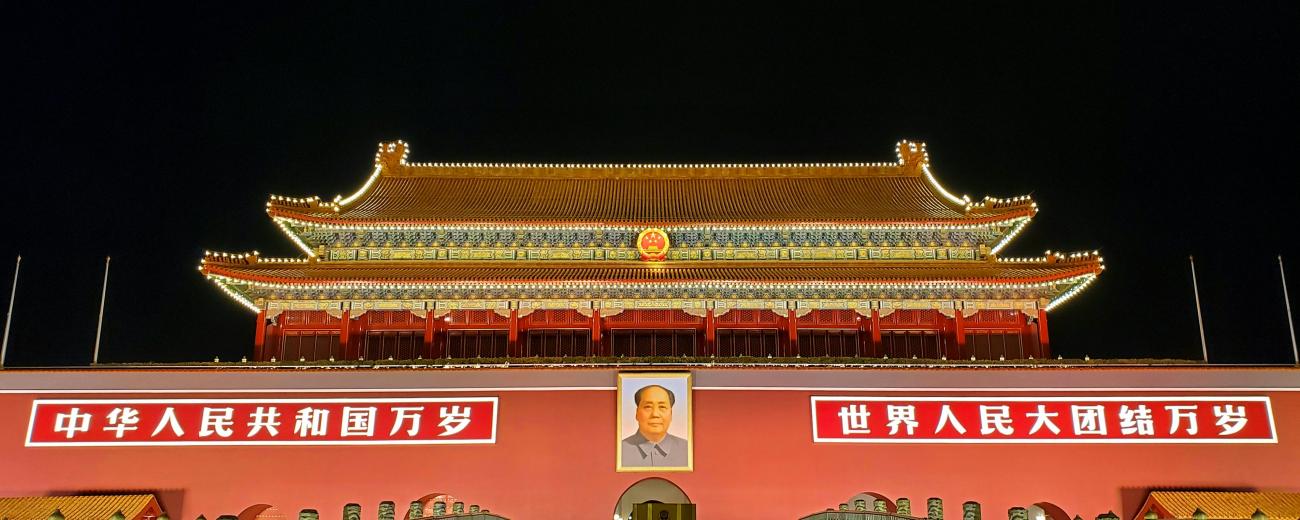
35 Years after Tiananmen: Where is China heading?

Key information
- Date
- Time
-
5:00 pm to 6:30 pm
- Venue
- Paul Webley Wing, Senate House
- Room
- Alumni Lecture Theatre (SALT)
About this event
China in 2024 is a world apart from China in 1989, when popular and peaceful protests in Beijing centred around Tiananmen Square captured the world’s imagination before they were brutally suppressed.
It had changed from the early Deng Xiaoning era of ‘reform and opening up’ to the Xi Jinping era of confidently asserting that the East is rising while the West is declining. This panel discussion will explore a number of questions. Is China under Xi delivering what Deng had in mind when he instructed China to ‘hide its capabilities and bid for time’? Is China under Xi heading in a direction that will make tomorrow a better one for the people of China? Are there lessons from 1989 that are still relevant and important for China today?
Panellists
Professor Kent Deng is Professor of Economic History at LSE and a Fellow of the Royal Historical Society (FRHistS). Prof. Deng's research interests and writing includes the rise of the literati in the economic life of pre-modern China; the maritime economic history of pre-modern China; the economic role of the Chinese peasantry.
Other key topics in his work are the developmental deadlock of the Chinese premodern economy; long-term demography of premodern China; early modern railway development in China; Chinese fiscal state and its impact on the economy. He has published widely and is the author of a number of books including China’s Political Economy in Modern Times: China's states and state-building, 1800 to 2000 (Routledge, 2011).
Dr Shao Jiang is a Visiting Scholar of Centre for the Study of Democracy at the University of Westminster. He was actively involved in student movements from 1986 to 1989 when he was an undergraduate of the Mathematics Department at Beijing University. On 17 April 1989, he drafted a list of demands when marching towards Tiananmen Square with his fellow students. Later the demands became one of the main manifestoes of the 1989 pro-democracy movement.
In the evening of 3 June, he witnessed the killings in West Chang’an Avenue before running back to Tiananmen Square to warn fellow protesters of what was coming pleading with the “Four Gentlemen” (protest leaders) including Liu Xiaobo, to retreat by negotiating with the army leaders. He was among the last group of protesters who left Tiananmen Square in the early morning of 4th June. He was jailed for 18 months in a series of provincial and national prisons from 1989 to 1991.
He was again put in detention centres and under house arrests for his involvement in civil resistance between 1994 and 1997. He fled China in 1997 and has been in the UK since 2003.
Dr Shao's publications include Citizen Publications in China before the Internet (Palgrave, 2015), “The UN’s Human Rights Mechanisms and the Development of the Civil Society in China” and “Crisis of Democracy In the Era of Global Capitalism”.
Moderator: Professor Steve Tsang, Director, SOAS China Institute
Registration
This event is open to the public and free to attend, however registration is required.
Please note that this event is taking place on campus and will not be recorded or live-streamed.
Organiser
Contact
- Email: sci@soas.ac.uk
Photo credit: Yang Yang on Unsplash


